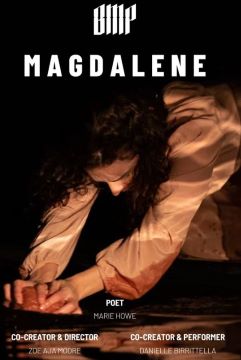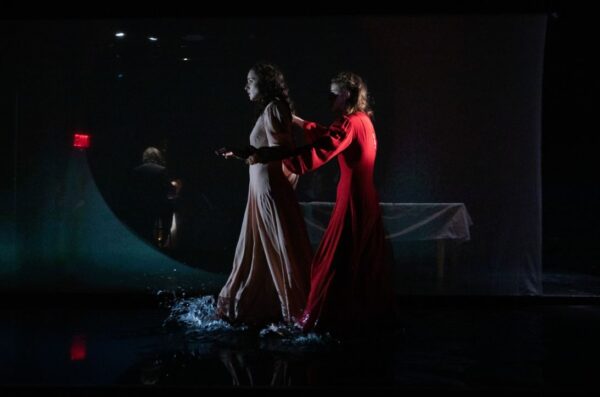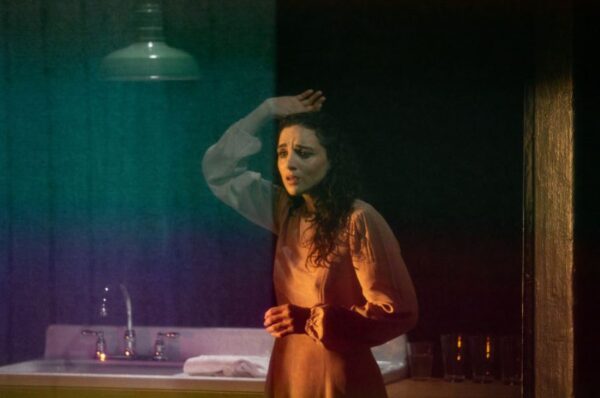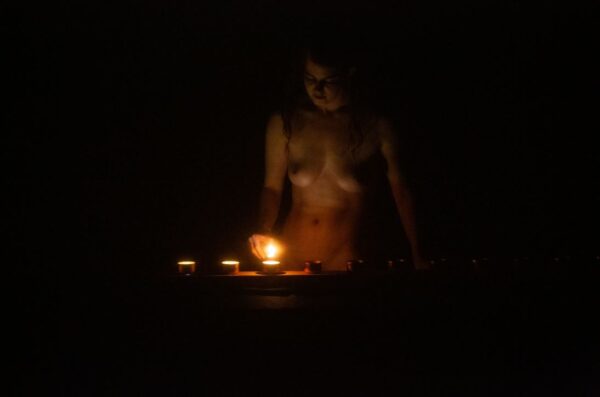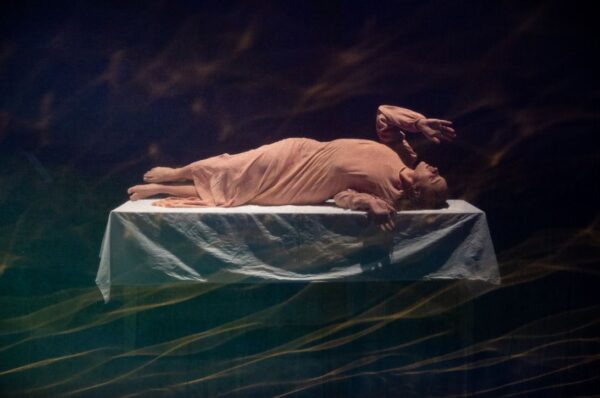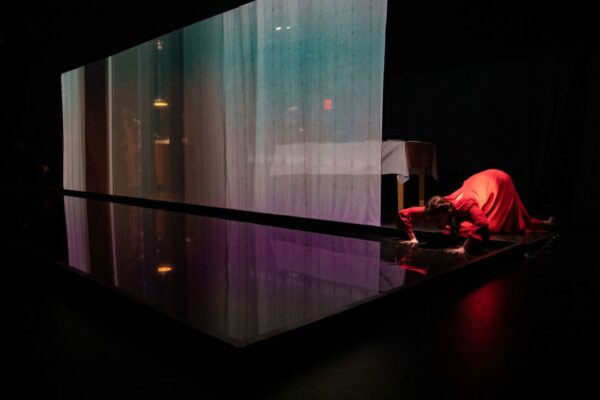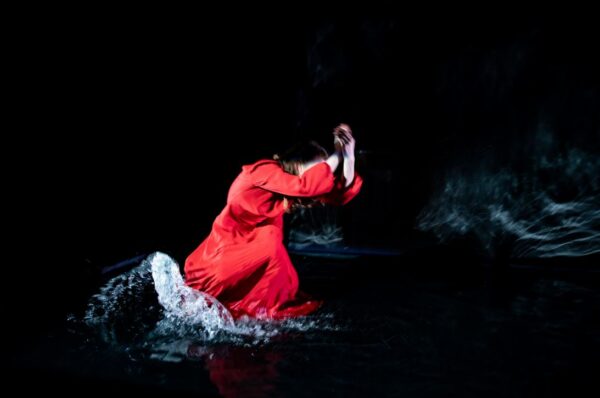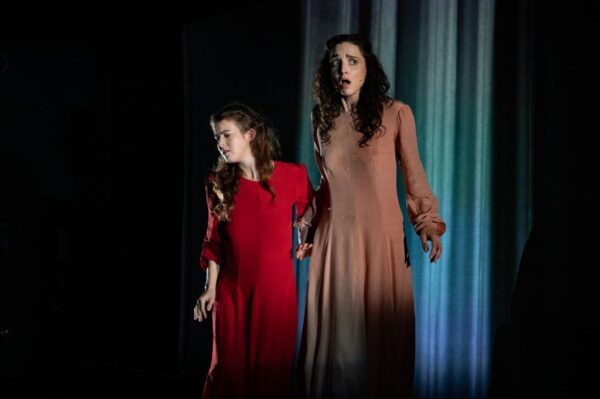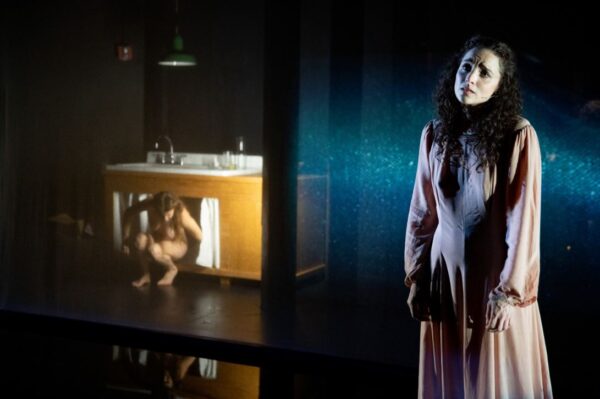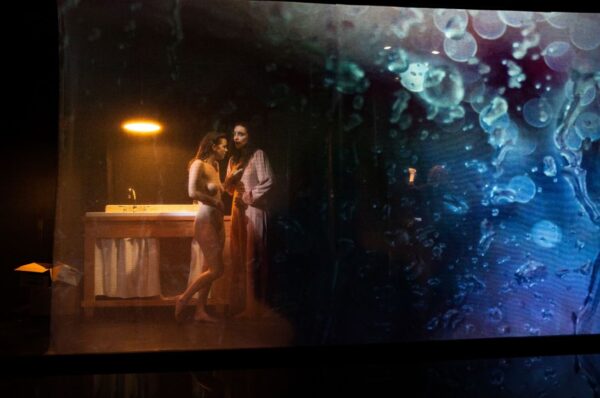MEHDALENE
On Tuesday, REDCAT hosted the west coast premiere of Beth Morrison Projects’ 2020 one-woman opera, Magdalene. A collective all-female endeavor, it has Morrison as creative producer, Danielle Birrittella and Zoe Aja Moore as “creators,” Marie Howe as poet, and 14 different composers. If that sounds messy, then gird your loins.
Magdalene is yet another new opera that starts with scratchy strings and heavy breathing over the speakers, just like Isola a few months ago at Long Beach Opera. Not a good sign. Coupled with this, Birrittella repeats a mantra-like “Ohm” in the key of Shirley the Loon. I enjoyed p r i s m by Ellen Reid, the composer that begins this opera, so I was primed to like this, too. Alas, all 14 composers were indistinguishable from the next, and I could not tell when one composer finished and the next began. Their music lacked life, excitement, drama, and dramatic structure. It was a meandering muddle that never raised its voice above a mezzo-forte.
The opera also lacked plot, though it threatened to have one. Birrittella sings M, ostensibly meaning the name in the title, but having clarity is too big of an ask. M begins the opera as a housewife (maybe?), who asks herself, “Was I ever a virgin?” She then sings about an unnamed man who turned her on and with whom she later had sex in the “sucking” and “lapping” waters at the beach. There are lots of men mentioned, but never by name, only variants of lower-case “he.” Despite the religious tone of the title, “He” is never mentioned. M then goes on enough sexual adventures to qualify for a 1970s porno feature.
Alongside M, dancer Ariana Daub, in a red dress, plays “M.,” which I read as “em dot.” M. doubles M (just like Isola’¦) and seamlessly morphs into other characters, though I was never entirely sure what she was doing. M. eventually strips naked (Isola again’¦), which results in some odd staging. There’s a scene where M talks to her daughter, that is, M., about reincarnation with such inspired writing as, “No way, Jose.” However, at this point, M. is naked, so M is talking to her naked daughter about reincarnation. Oh, and M. is writhing around on the dinner table. Weird.
It was a dreadfully dull affair, but there was one conditionally-bright spot. About halfway through, M sings about all the penis she’s had. Behind her, there’s lurid video of golden goo gliding down a lock of hair. The music is appropriately sleazy, but still nothing to write about. It’s a grocery-list song where M recounts her lovers, but only refers to their penises. She describes them in surprisingly tender words, revealing her to be a serious connoisseur of penis. I found this refreshing, but, alas, this aria ends on a sex-negative note as she describes the penises who were brutes. Must penis always be a weapon in feminist art? At this time, M. lies like a plumber under the kitchen sink with her legs askew, as if spent and discarded. This left an ugly taste in my mouth.
Hana Kim and Randy Wong-Westbrooke’s simple set consisted of a kitchen sink with base on the left and a long dinner table on the right. A white scrim covered the entire stage. In front was a pool of water in which the actresses splashed about (yes, as in Isola). Chris Kuhl, one of the few men involved in the production, provided subtle and interesting lighting, often shining lights on the pool to reflect striking patterns of waves on the scrim. Buried in the back, with just a hint of orange light, was conductor Mila Henry and the five-piece ensemble (Viola: Tess Scott; Violin: Michelle Sheehy and Jordan Warmath; Cello: Joo Lee; Harp: Liza Wallace). Video was by Emilie Sabath and Keith Skretch (for those of you keeping track, that’s four sets of people who share creative titles), which was graceful and had a smooth frame rate. Costume designer Rebecca Grenell gave each actress a simple, unfussy dress.
Sound was by Drew Sensue-Weinstein, who over-amplified everything and made Birrittella wear an ugly face microphone. Opera should not be amplified, especially in smaller spaces like REDCAT, but if it must, mics need to be hidden. There were some interesting bits where he ping-ponged Birrittella’s ohm-ing in the surrounds, but it was too loud overall and her voice was perpetually disconnected from her body.
The opera is in English, but open captions were projected above the stage. Even though Birrittella had excellent diction, the music worked against her, dragging words out as slowly as possible, when not outright distorting them. Sadly, I used the crutch of captions when she sang things like, “She crau-oo-ow-oo-ow-oo-ow-oo-ouched.”
The last scene made clear, finally, that M was not a single character, but (probably) a series of characters. It’s another list song where M sings that she is the woman who does this and that, including “reheating pizza.” The Eternal Woman, if you will. Jesus, the reason for Magdalene’s fame, never came and was never mentioned. The music here kind of felt like a climax, but it didn’t achieve full release, so when it ended, the audience sat in silence until a single clap, probably related to the production, signaled that this dreary show was over. I believe in new opera, but too often I have to steel myself in anticipation of being pummeled. Meredith Brooks and Shelley Peiken covered all that this opera did in a joyous four minute song, “Bitch”. Imagine an opera sprung out of that!
photos of a previous production courtesy of Beth Morrison Projects
Magdalene
Beth Morrison Projects
REDCAT (Roy and Edna Disney/CalArts Theater)
631 West 2nd St (under Disney Hall)
ends on June 8, 2024
for tickets, call 213-972-8001 or visit REDCAT
